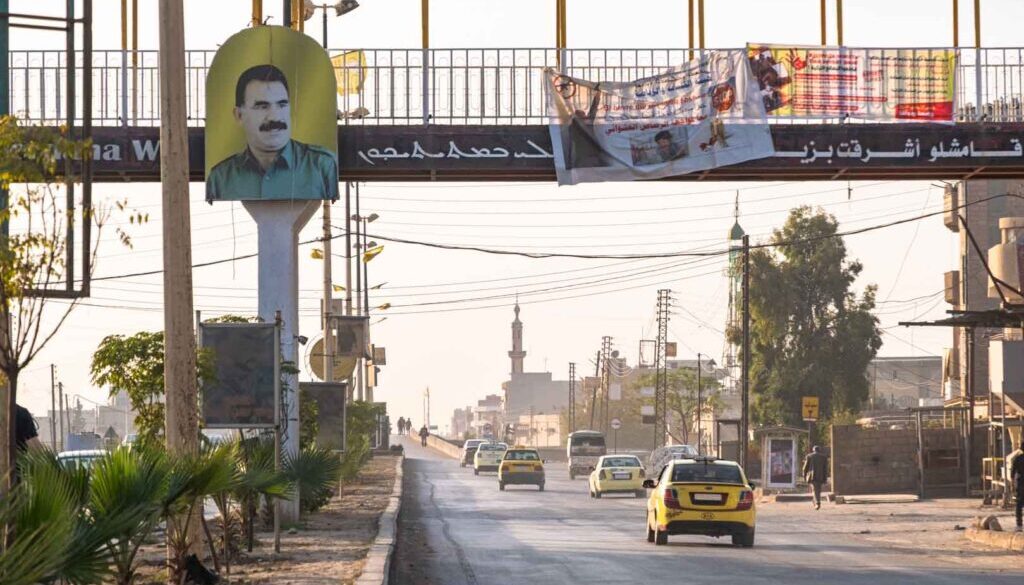The Price of an Idea: Democratic Revolution in Rojava
“To put it succinctly, capitalism and the nation-state are the monopolies of the tyrannical and exploitative male. Breaking down this monopoly will perhaps be more difficult than breaking down the atom”.
Abdullah Öcalan.
Qamishli, Syria
December 2019
Looking for clues on the trail of democracy beyond Athens, we take our turn to cross the legendary Tigris River to explore a part of the world that’s done its fair share in shaping our past and present – Mesopotamia. It was here that the oldest warning against the unrestrained power of tyrannical rulers was written, the 4,200-year-old ‘Epic of Gilgamesh’. In his lust for immortality and ultimate power, Gilgamesh faces monsters, goddesses and other trials to finally be confronted by his own mortality. The tale is a powerful reminder that we are all ultimately of the same flesh and blood, and that the real ‘myth’ is that which tries to claim that some of us are inherently more fit to rule than others. We may think that we have left the idea of ‘the divine right of kings’ far behind us in history, yet if the behaviour of Trump or Orban, are anything to go by, then perhaps it’s not as dead as the kings who once drew authority from it. We might even say that the tale of Gilgamesh represents the first known written argument for democracy. In fact, despite prevailing western attitudes towards the region, democracy wasn’t so foreign to Mesopotamia as many assume. Ancient cities such as Kish and Shuruppak had systems of popular voting not dissimilar to those of Athens, and in some cases more inclusive. Others had what would effectively pass for parliamentary systems today with popularly elected representatives on fixed terms. Perhaps it’s little wonder then that the seeds of a new democratic revolution are to be found right here in present-day Syria. What’s more surprising is that this revolution has emerged out of one of the most violent conflicts of our time, and in the shadow of the murderous regime of a modern-day Gilgamesh – Bashar Al-Assad.
As dusk descends, a small crowd gathers in an empty schoolyard. The tension is palpable, the fatigue and uneasiness all-too-evident on the faces of the men and women as they shuffle past an armed guard into a dusty classroom. For years now war has never been too far away from the city, but now it is closer than ever. In a corner of the room, Amal Ibrahim listens intently to the update from the frontlines. A mother of three, and a former hairdresser, she has been at the heart of Rojava’s ‘democratic revolution’ since Assad’s regime began to crumble in 2012. Surrounded by dictators and extremists, Rojava’s radical democracy has earned it plenty of enemies, but Amal knows the value of what she is struggling for. A few years ago, her cousin was killed and mutilated by ISIS. Like everyone in the meeting, she is a ‘commune co-chair’, an elected leader who directly connects her community to the emerging regional government. Here, the traditional power relations of government are inverted – authority is held not by the regional government, nor by the city council, instead it is the local community which is the self-sovereign building block of the system.
‘Democratic confederalism’, was conceived out of the prison writings of Rojava’s spiritual godfather – Abdullah Öcalan, or ‘Apo’ (Uncle), as he is affectionately known by his adherents. A cultist and a terrorist to some and a visionary to others, whilst incarcerated on the Turkish island of İmralı, Öcalan had something of a political transformation. Rejecting the Marxist obsession with class and worker control of the state on the one hand and anarchism’s simplistic dismissal of all hierarchy on the other, he instead argued for a more nuanced view of societies, a sort of ecology of social organisation and community. One based on environmentalism, feminism, direct democracy, multiculturalism, self-defence and elements of a sharing economy. He and his followers eventually abandoned the struggle for an independent nation state for the Kurdish people, arguing that it would merely recreate the same cycles of oppression that they had suffered for centuries. In fact, given its intransigent nature, he was adamant that the nation state itself was antithetical to the democratic project.

Mesopotamia and Rojava together present two key challenges to the prevailing accepted wisdom about democracy. Firstly, if we broaden our Eurocentric gaze even slightly, we can see that both the underlying philosophy and practice of inclusive government clearly didn’t begin in ancient Athens, nor can it be claimed as a ‘western’ innovation. And secondly, that the sacred marriage of the nation state and democracy, the pairing at the heart of our current political organisation, might not be sacrosanct after all. So, if democracy predates the nation state, even predates Athens, what about before the dawn of civilisation? Just how far back does the story go?
CLICK HERE TO VIEW THE PHOTOGRAPHY
